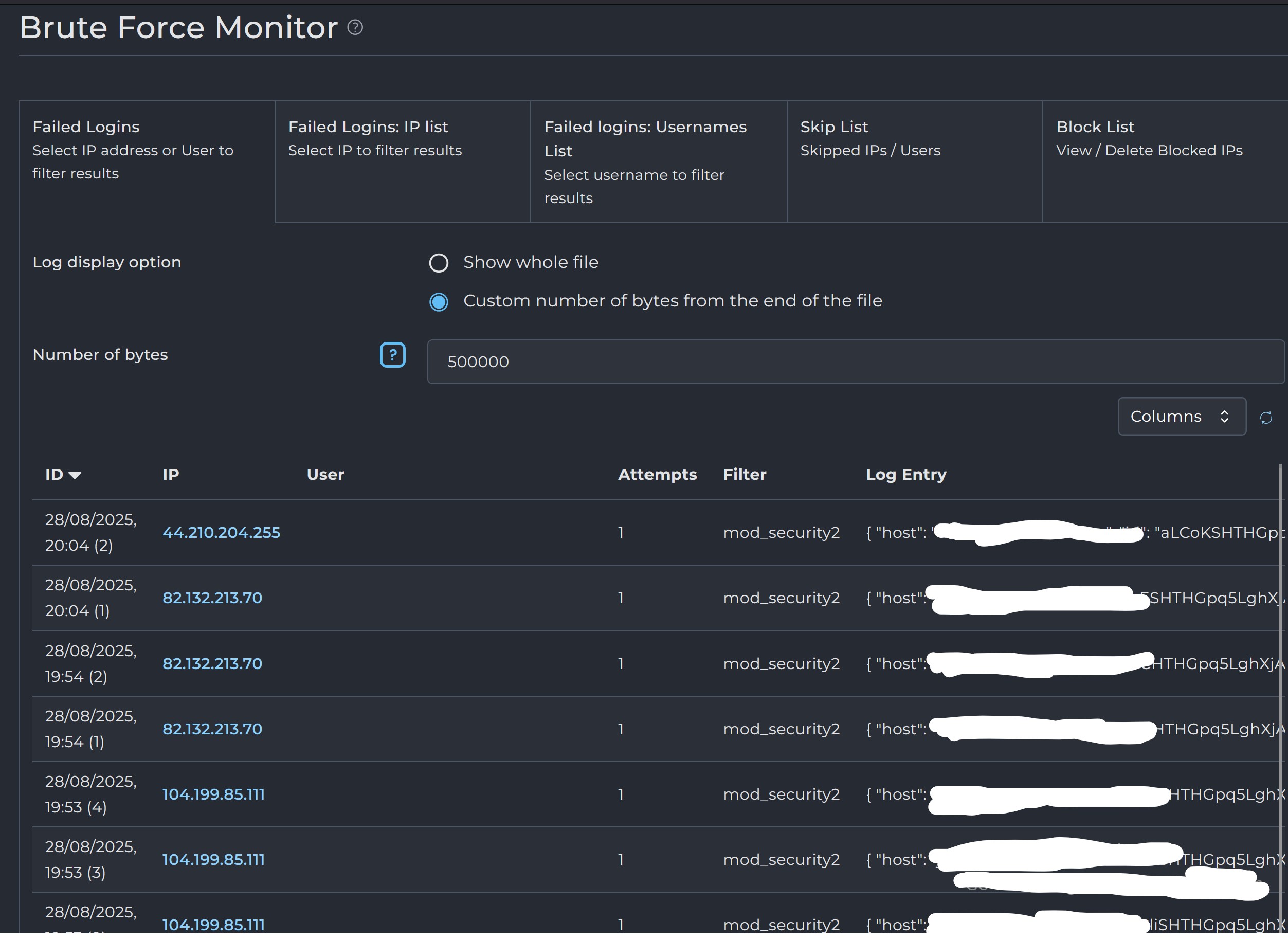
In today’s cyber landscape, attacks on websites and online systems are inevitable. Every open port, login page, or API endpoint is a potential doorway for malicious actors. At SCM360 LAB, we believe in going beyond simply blocking attackers—we transform these weak points into honeypots to trap and study them.
The Honeypot Doctrine
Our principle is straightforward: “When we know the attack surface, we rebuild it in a customized way and turn it into a honeypot.”
This way, what used to be a vulnerability becomes an opportunity to learn more about attacker behavior and improve defenses.
Real-World Example: wp-login.php
One of the most targeted files on websites globally is wp-login.php.
Attackers try brute-force logins daily. Instead of leaving it exposed, we convert it into a decoy honeypot.
Here are a few recent attempts recorded:
- 29/08/2025, 17:42 – IP:
35.170.223.132→ triedGET /wp-login.php - 29/08/2025, 16:10 – IP:
198.235.24.10→ triedGET /wp-login.php - 29/08/2025, 16:32 – IP:
114.119.137.80→ triedGET /xmlrpc.php
📸 Below is a snapshot from our Brute Force Monitor, showing live logs of attackers attempting to breach login pages:

Instead of being a real login page, this honeypot logs every request and feeds it into our monitoring system. From there, we identify repeat offenders, map out IP blocks, and build defensive intelligence.
Extending to xmlrpc.php
We are also working on applying this method to xmlrpc.php, another commonly abused endpoint.
By turning it into a honeypot, attackers will unknowingly give us more data to strengthen our security posture.
Why It Matters
Every attempted attack contains valuable intelligence—IP ranges, attack patterns, tools, and intent. By studying them instead of just blocking, SCM360 LAB transforms the battlefield. Attackers waste time in traps, while defenders gain knowledge to reinforce the real systems.
Closing
Cybersecurity is no longer about hiding; it’s about learning and adapting. At SCM360 LAB, we make sure that every attack attempt becomes an opportunity. Honeypots are not just traps—they are powerful teachers.

